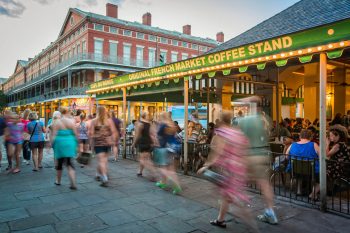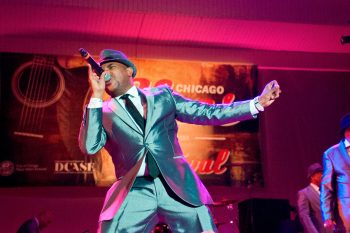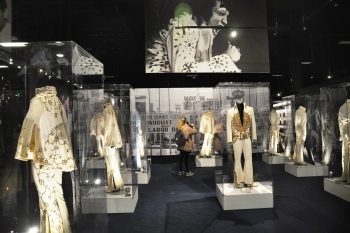Tennessee offers the chance to learn about the struggles and triumphs of African-Americans who helped to shape and build our country.
Alex Haley Museum & Interpretive Center, Henning
The boyhood home of famed author Alex Haley, who penned the groundbreaking novel “Roots: The Saga of an American Family”, is located in Henning. “Roots”, which was made into a landmark TV miniseries in 1977, was inspired by family stories young Alex heard on the porch of the home. The house is listed on the National Register of Historic Places, and Haley is buried on the grounds. The inside of the home has been restored to the way it looked in 1921 when Haley was born; exhibits feature Haley’s work, childhood memorabilia and references to the people who inspired the characters in Roots.
Dunbar Carver Museum, Brownsville
Dunbar Carver Museum is located on the site of the former Carver High School, and tells the stories of African-American life in Haywood County through events associated with the more than a century-old existence of the Dunbar-Haywood County Training Center-Carver High School.
National Civil Rights Museum, Memphis
This one-of-a-kind Memphis museum is built around the former Lorraine Motel where Martin Luther King, Jr. was assassinated in April 1968. The motel sits on more than four acres that make up the museum. Visitors can trace the history of the Civil Rights Movement in the United States from the 17th century to the present.
Slave Haven Underground Railroad Museum, Memphis
Once known by many as a stop on the Underground Railroad, you can descend into the dark, damp cellar and peer through the trap doors and hidden passageways where slaves looking for a free life were harbored.
Stax Museum of American Soul Music, Memphis
Experience the story of Stax Records, one of the most famous recording studios in the world, through interactive exhibitions and artifacts. The museum shares how creative individuals came together to write, record and produce some of the best soul music in Memphis, regardless of skin color or background. The hall of records where the walls are lined floor-to-ceiling with albums and singles released by Stax gives guests a tangible view of the large impact Stax had on the world’s music.
Tina Turner Museum and Flagg Grove School, Brownsville
Known as The Queen of Rock n’ Roll, Tina Turner was born in Nutbush—which she later made famous with her hit song, “Nutbush City Limits.” She attended school in a one-room schoolhouse located in Brownsville—one of the first schools built in the South for African Americans. Visitors to the museum will explore the largest known public collection of Tina costumes and memorabilia.
Withers Collection Museum and Gallery, Memphis
Ernest Withers made his name as a freelance photographer documenting the segregated South through iconic black-and-white images. Born in Memphis, Withers also traveled with Martin Luther King, Jr. The Withers Collection Museum and Gallery allows people a glimpse into the past through more than 60 years of photographs that depict African Americans’ discrimination and struggles.
Beck Cultural Center, Knoxville
This museum is one of the most extensive in African-American history. From cultural and scientific achievements to postal stamps through the years that have honored African Americans like Ralph Bunche and Martin Luther King, Jr., visitors can see the vast ways African Americans have influenced political and social culture.
Green McAdoo Cultural Center, Clinton
Visitors can learn about the courageous story of the Clinton 12. Step inside a 1950s classroom and see what life was like under Jim Crow laws. Follow the chronological story of the desegregation of the Clinton High School with life-size photographs and narratives.
Bessie Smith Cultural Center, Chattanooga
The center promotes and preserves African-American culture, history and arts. Learn the life and musical accomplishments of Bessie Smith, the “Empress of the Blues.” Education and entertainment collide to provide a venue of history and art for its visitors.
McLemore House Museum, Franklin
Explore the African-American history in Franklin and other parts of Williamson County at the McLemore House in Franklin, Tennessee. The house, purchased by ex-slave Harvey McLemore in 1880, was a model of community development in Hard Bargain, the first African-American middle class neighborhood in Franklin that consisted of carpenters, teachers, masons and farmers. The house now serves as a museum that promotes cultural and historical preservation, celebrating the rich African-American heritage of Franklin and Williamson County.




